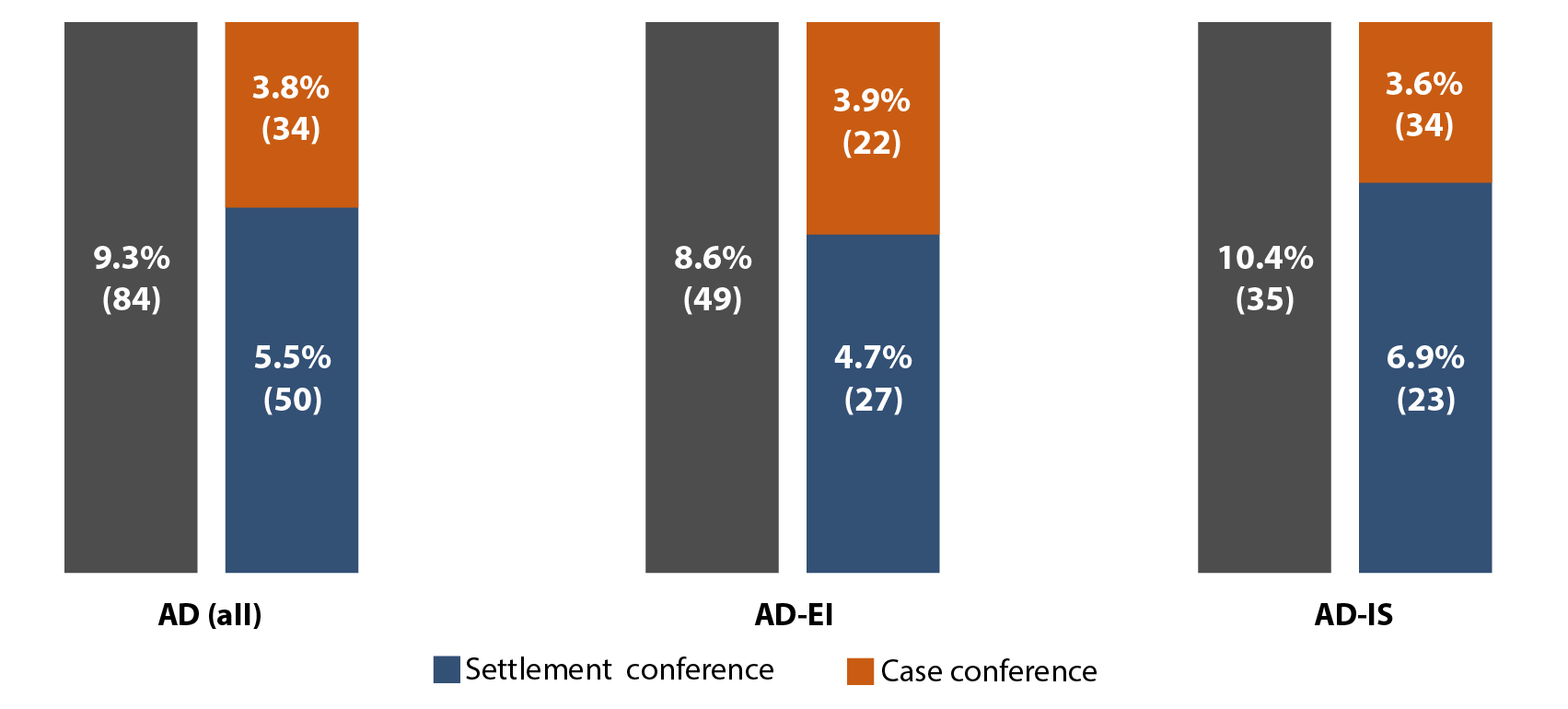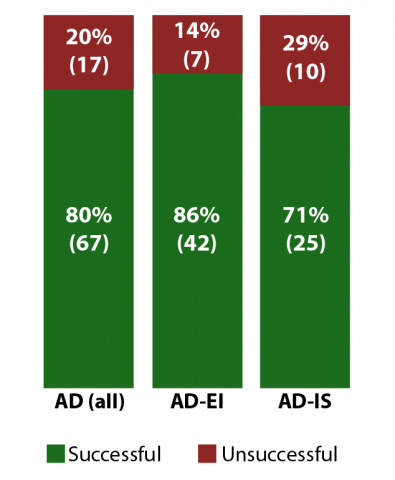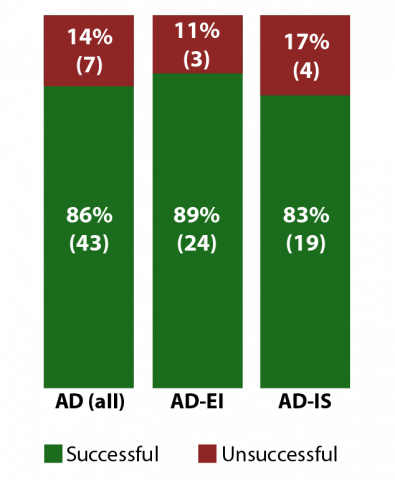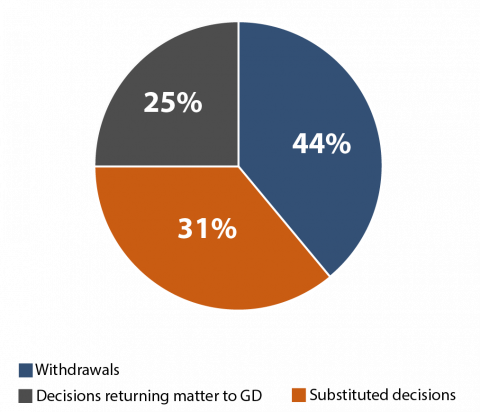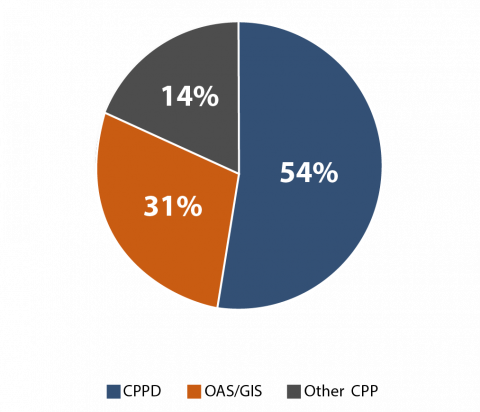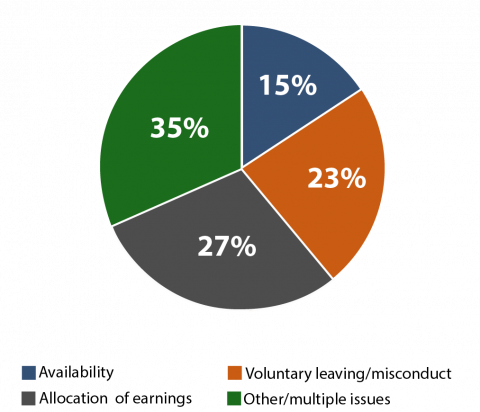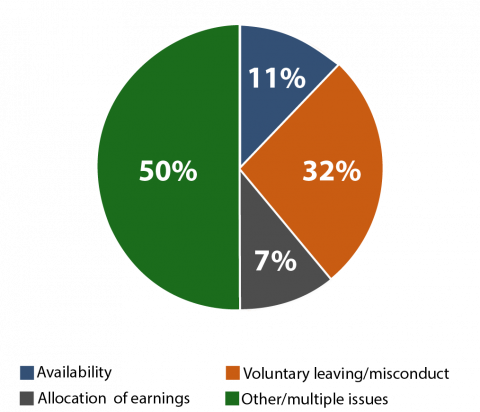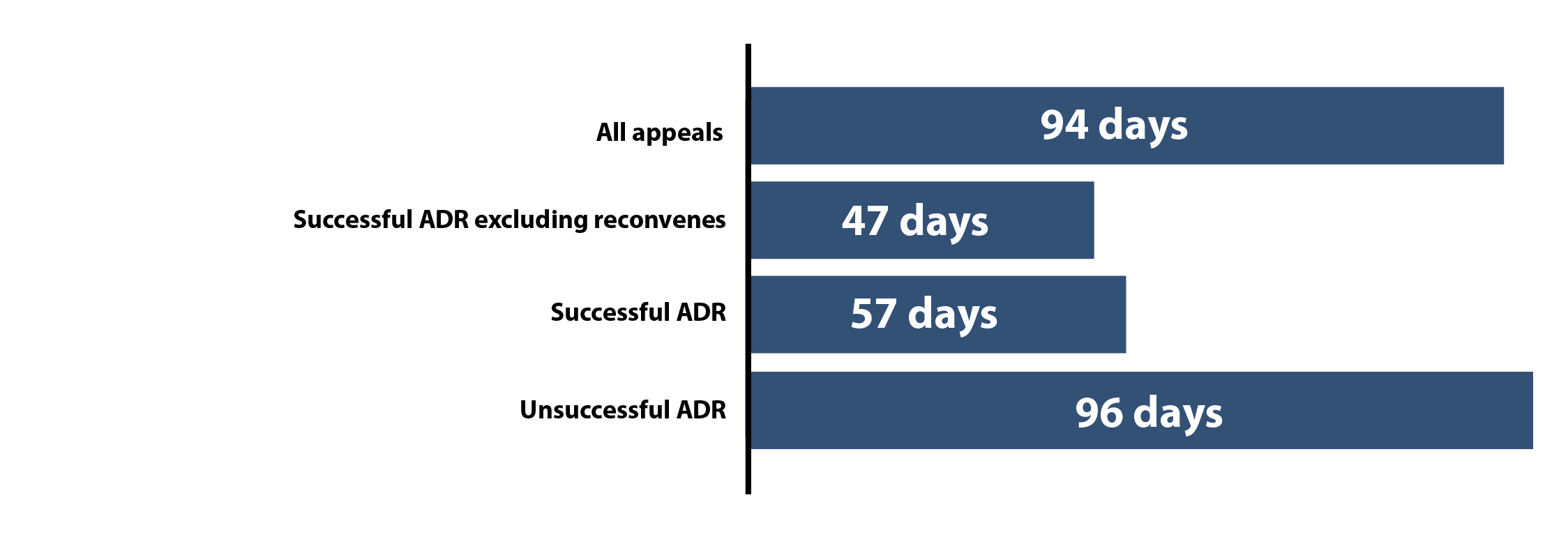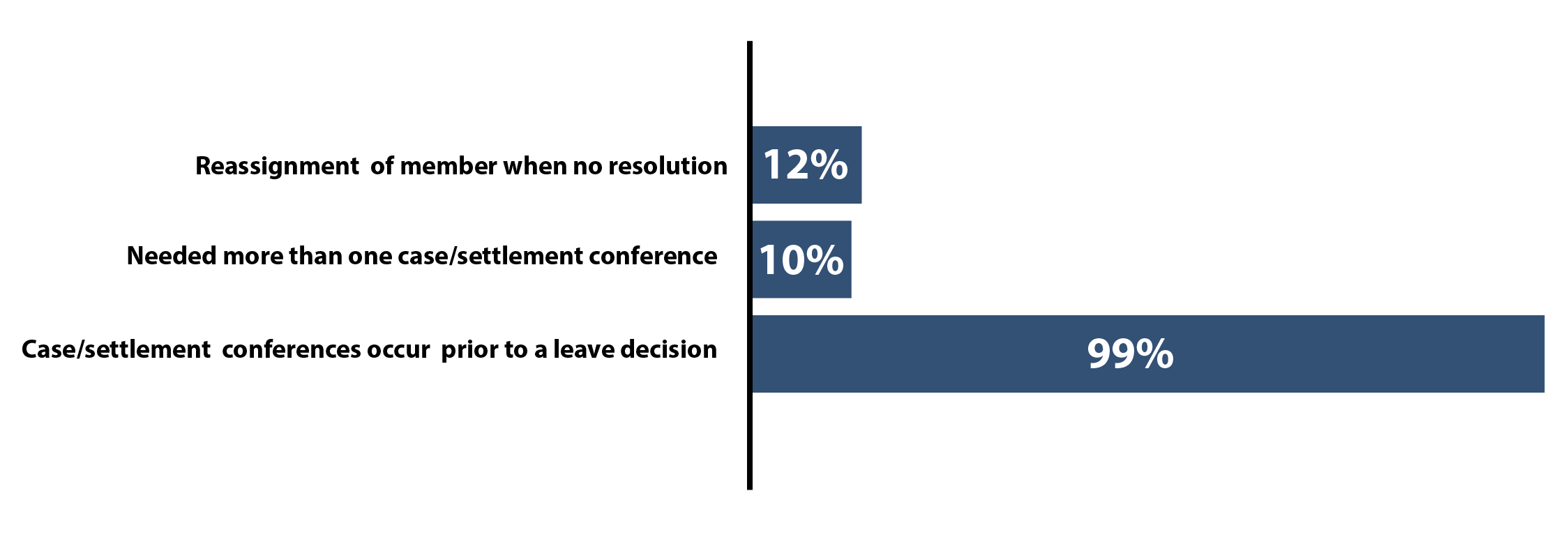A review of alternative dispute resolution at the Appeal Division for fiscal year 2019-20
Overview
The Appeal Division (AD) diverts a small but consistent percentage of appeals to alternative dispute resolution (ADR), with excellent rates of success. ADR is considered successful if the issue(s) under appeal at the AD are resolved.
Most of the time, a member or the vice-chairperson initiates ADR. A representative requested ADR in four cases this year.
The AD holds Settlement Conferences when there is a reasonable expectation that the issues(s) under appeal can be settled. The AD holds Case Conferences when there is a reasonable prospect that, by bringing the parties together, the appeal may be resolved indirectly. Settlement Conferences are more common than Case Conferences, and generally more successful. The weaker results with Case Conferences in Income Security appeals are likely because these continued to be offered for educational purposes until midway through the fiscal year.
Files diverted to ADR (percentage and number)
Combined ADR outcomes (percentage and number)
Settlement conference outcomes (percentage and number)
Case conference outcomes (percentage and number)
Outcomes and issues
When parties reach agreement at a Settlement Conference, the AD usually issues a decision. That decision might refer the matter back to the General Division or it might provide a substituted decision. In contrast, a Case Conference may resolve a claimant’s concerns without the need for an AD decision, leading to a withdrawal. Three-quarters of all ADR resolutions end the dispute conclusively; the other quarter return to the General Division. ADR covers all grounds of appeal (types of errors), with procedural fairness being most common.
Successful ADR saves resources for everyone. The parties don't have to prepare written arguments about their appeal or attend a formal hearing. Members write a brief decision (usually combining leave and merits) or none at all (withdrawals), freeing up time for other appeals.
Successful ADR : Outcomes
Successful ADR : Errors (if a decision is issued)
More Old Age Security (OAS) and Guaranteed Income Supplement (GIS) appeals and fewer Canada Pension Plan (CPP) Disability appeals went through ADR, than the usual distribution.
Substantive IS issues in ADR
Substantive IS issues at the AD generally
More earnings allocation appeals and fewer voluntary leaving/misconduct appeals went through ADR, than the usual distribution.
Substantive EI issues in ADR
Substantive EI issues at the AD generally
Timeliness
ADR currently runs parallel to the regular process. When ADR succeeds, the timelines are much shorter - especially when only one session is required. A big factor in the reduced processing times is that ADR almost always happens before a leave decision is issued. When ADR fails, the appeal is still resolved within regular timelines. The file usually stays with the same member.
Timeliness: Processing times in days
Timeliness: Other factors
Comments from claimants and their representatives
ADR gives parties the opportunity to talk with each other and with an AD member, and leads to an efficient resolution of most appeals. The following quotes (taken from outcome recordings) reflect a high level of satisfaction with the positive results of ADR:
"I’m glad that we were able to come to a final decision after all this was dragging on so long, and for taking the time to actually explain this thing to us instead of pushing us over and having us run around places…"
"I really appreciate it… I felt like sometimes I was being treated like I was being dishonest and I wasn’t in any way. I can’t thank you enough."
"I am very satisfied. Thank you for all your help. I was troubled by this problem over the past two years."
"Thank you all very much. It’s been a very pleasant experience."
[Translation] "We appreciate the Tribunal and its commitment to an amicable settlement process—not to mention their patience. Although the process took longer than it usually would, I still think it was very worthwhile. In the end, we were able to reach an outcome that was fair and just for all parties."
Employment and Social Development Canada and the Canada Employment Insurance Commission
As the institutional litigants in all appeals at the AD, Employment and Social Development Canada (ESDC) and the Canada Employment Insurance Commission (CEIC) have played a critical role in the success of ADR.
ESDC and CEIC report their satisfaction with the progression of ADR at the AD in 2019-20. ESDC and CEIC are confident that this success will continue, with ADR now integrated into their regular operations. In addition to timely resolution of appeals, they recognize the value of bringing the parties together to engage directly with each other and an AD member.
What’s next?
- Continue ADR in FY 2020-21 while planning to adapt ADR to any procedural changes at the AD in 2021-22
- Maximize opportunities for settlement and minimize the need for repeat conferences by:
- Ensuring that AD members provide relevant details in ADR invitations
- Encouraging ESDC to give all of its representatives (or specialized representatives) broader authority to resolve appeals during settlement conference discussions
- Encouraging ESDC to include their client when appropriate
- Further reduce the notice period for most ADR conferences to 1-2 weeks (excluding those where ESDC is likely to consult its medical unit)
- Explore with ESDC the feasibility of a holistic approach where the AD can bring the parties together to discuss all of the claimant’s related concerns at the same time (including, for example, administrative error/erroneous advice claims or financial issues, which are not within the AD’s authority but could be resolved by the parties)
- Encourage members to consider ADR after the leave decision is issued, when there is a fair prospect of settlement
- Ensure that ESDC and CEIC representatives are aware that they can request ADR on an appeal at any time. Encourage them to do so when considering a concession, in order to engage the other party and/or obtain assistance to fully resolve the appeal

